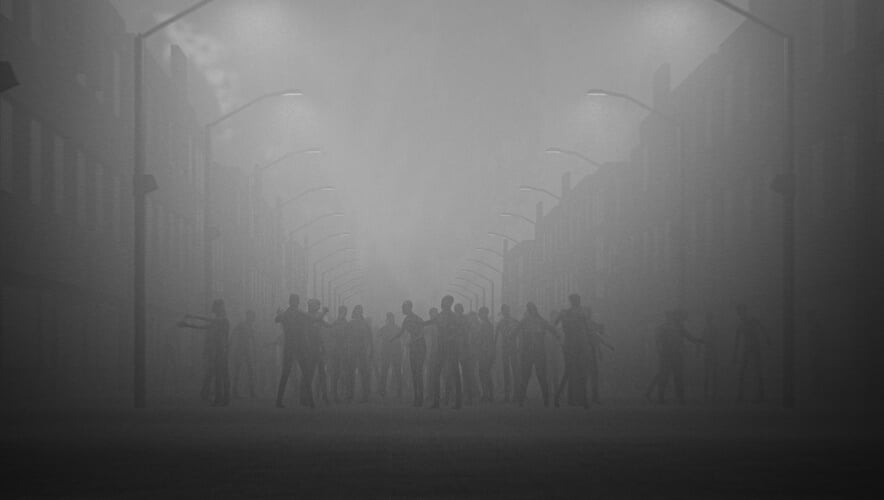GSX+ Game Changer: Security and Supporting Creativity
“I did not make anything up,” Max Brooks said of his account of a world recovering from a zombie pandemic. “I just zombified.”
Yes, World War Z: An Oral History of the Zombie War is fiction, but Brooks said that the veneer of brain-hungry ghouls was a valuable tool in educating readers about military history and responses; in fact, his philosophy is that an effective way to educate people is to first entertain them.
In both the book and his Game Changer session Friday morning at GSX+, the best-selling author and senior fellow at the Modern War Institute and Atlantic Council, Brooks pointed to the need for creativity to succeed—especially when faced with incredible challenges like the coronavirus pandemic.
Brooks added that we failed to look at history when trying to grapple with COVID-19, which led the United States to fall short in how it dealt with the pandemic.
“It’s because at this point in our history, especially in the West...we lost our living memory,” Brooks said. “We have lost the last generation to have grown up before vaccines and before massive public health and infrastructure.”
There have been a recorded 203,000 deaths from the coronavirus in the United States, as of GSX+ Daily’s press time, with the University of Minnesota estimating that underreporting COVID deaths may be as high as 30 percent. But beyond the fatalities, the nation is still struggling with severe economic and psychological fallout thanks to the pandemic’s continued and almost unrelenting presence in several parts of the country.
“We lost a golden opportunity with COVID because there’s been tremendous psychological damage from this disease,” Brooks said. “It has caused horrific anxiety and depression, and it didn’t have to be that way.”
If we do not want to continue to fall into fear and feed further anxieties, Brooks adds that things must change. “We need to confront these fears instead of collapsing,” Brooks said.
While we look for new solutions for the problems of today and tomorrow, we need to consider the past to avoid repeating the mistakes we and our ancestors already made. If we look at dealing with the coronavirus like fighting a war, then even more of Brooks’s insight becomes applicable.
When trying to win a war, especially one that involves new threats, such as novel tactics or weaponry—Darwinism becomes gospel, proving that evolution is essential.
“That’s the story of war: whoever adapts, wins.... If you do the same thing over and over and over again, you will lose,” Brooks said.
Creativity—along with courage and discipline—can turn the tide, allowing an army to adapt to the threats it faces.
Brooks pointed back to the Battle of Taranto, which occurred during World War II, to illustrate the efficacy of this trifecta. The battle was the first time an all-aircraft ship attacked a navy, with the British Royal Navy using biplane torpedo bombers to raze half of the Italian naval forces in a single night.
Although most looked at the attack and considered it an outlier, unlikely to occur again, 36-year-old Minoru Genda listened to reports about the attack and realized that the Japanese could apply similar tactics.
Admiral Isoroku Yamamoto championed Genda’s idea, and after the nuts and bolts of the operation were developed, the Imperial Japanese Navy Air Service successfully led an attack at Pearl Harbor in Hawaii. The surprise strike occurred a little more than one year after the Battle of Taranto, with one country successfully using the creative process, while the other could not see nor adapt to the threat until lives were lost.
“That is the creative process,” Brooks said. “An idea, a champion, and a nuts-and-bolts person.”
This example points to the fact that not everyone has to be the British Royal Navy or Genda. Successful leaders need to be able to recognize the great ideas and support them.
“When a good idea has a champion, it changes the world,” Brooks said.
If you missed Brooks’s session, GSX+ All-Access pass holders have the ability to watch the replay on demand through 31 December 2020.
